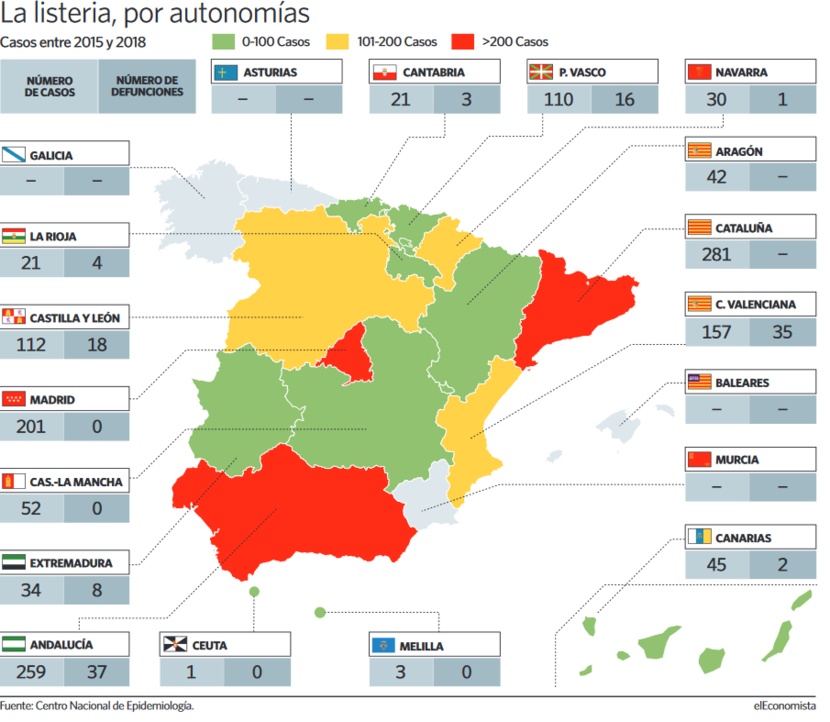Spain’s pork listeria outbreak
Due to the biggest ever listeriosis outbreak, Spanish meat industries are facing another reputational crisis after five consecutive years of reduced consumption. They are already in the media spotlight for reasons of health, climate change and animal welfare.

On 16 August 2019, Regional Health Authorities in Andalucía reported an outbreak of listeriosis, caused by Listeria monocytogenes, associated with the consumption of a chilled roasted pork meat product.
From 7 July through 13 September 215 confirmed cases linked to this outbreak have been reported in five Spanish regions. Three deaths have been reported among elderly persons who were ill with listeriosis at the time of death. Six women had miscarriages linked to this outbreak.
The disease is threatening to become a nightmare for the food sector, hitting small and medium-size companies especially hard. At the moment, the three Andalusian enterprises involved in the alerts issued are very small firms.
The underlying problem is that the number of cases of listeriosis confirmed and reported by the National Epidemiological Surveillance Network has skyrocketed in recent years. Between 2015 (the year from which notification of the disease is mandatory in Spain) and 2018, cases increased by almost 70% (Fig. 1). It has a special incidence in Andalucía and Cataluña, two of the regions with the highest number of food SMEs.

Fig. 1. Listeriosis by region 2015-2018
Health Authorities have reported that the only extraordinary outbreak recorded in Spain this summer is that caused by pork meat products from the Seville-based company Magrudis. The other two alerts (from meat companies in Cádiz and Málaga) have no or very limited health impact and “are relatively common in developed countries”.
The oven cart used at the Seville-based company and its larding needles have tested positive for the bacteria.
The fact that the three companies involved belong to the meat sector has forced the sectorial organizations Anice and Fecic to pronounce on the “food crisis”. Anice’s Secretary General stressed “these are isolated cases which cannot be extrapolated to the sector as a whole”. He also insisted on the need to rigorously inform consumers in order to avoid unnecessary alarms and possible damage to more than 3,000 companies, which employ around 100,000 workers.
The Government of Andalucía has announced the implementation of dozen measures to support the regional meat industry once the alert is completed.
Several sources